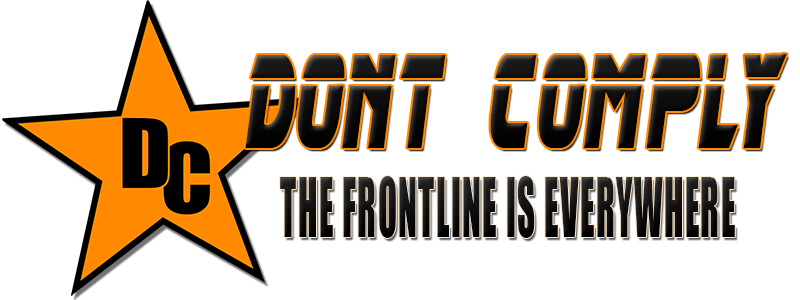There’s no question the internet has improved our quality of life over the last two decades. No single innovation has shrunk the world so far, and so quickly as the ability to “jump online” and access the world of readily available information scarcely imagined a generation before. It seems impressive, given the amazing explosion of innovation in the cyber realm within our lifetime, that the government has taken so long to attempt to devour it.

When the government has to advertise something, it’s almost never something you want. Image: cio.com
Today, the web remains free of any central authority and continues to proliferate itself throughout the world at a pace unprecedented in human history. It’s safe to say that we are in a golden age of technological innovation – a golden age that may finally be coming to an end when the FCC votes February 26th to implement Net Neutrality, the regulatory program that would bring the internet under the same classification as the land line telephone, giving the federal government authority to dictate to service providers that all traffic from the web shall be prioritized equally.
Net Neutrality proponents tout the new regulations’ ability to protect small business from being at the mercy of ISP giants like Comcast and Time Warner who currently may favor large corporate partnership with increased speed of access to you, the end-user. They also claim those corporate giants can use the power of their “gatekeeper authority” to stifle political speech that they don’t like. These would certainly be noble reasons for the government to intervene, to do away with this unjust interference with the free internet – if only it were actually happening!
What’s most impressive about the Internet is that it shows us the infinite potential of what can be done in the absence of centralized governance. Without a regulatory structure to interfere, it has exponentially expanded the global marketplace, stripped the mainstream media of its monopoly on truth, and given billions access to new opportunities in education and entrepreneurship – all on the watch of these so-called corporate “gatekeepers.”
What it doesn’t show us is the power of government to produce or manage something that people want. While the internet began as a government project in the 1960’s, it was a quaint novelty with extremely limited applications, useful for such mundane conveniences as sending reports and messages with an efficiency on par with 19th century telegraphy. Only the free market could even conceive of the full potential of networked home computers, and it wasn’t until the web was fully commercialized in the mid 1990’s that it began to revolutionize the way we interact with our world.

The ARPANET: what internet would be today if it stayed a government project. Image: howstuffworks.com
Since then, the technology of communication has grown at once smaller, more powerful, and cheaper, at amazing strides. Had it remained under the control of the government, home computers would very likely still be the size of window-box air conditioners today – just as if the government had controlled the telephone industry, we would still have operators plugging switchboards. This is because of a fundamental economic truth, that the government doesn’t need to worry about a bottom line, therefore the government cannot, and does not, innovate.
[adinserter name=”Post Ad”]
Despite the dubious logic manufactured to present a need for government regulation, proponents are pushing forward undaunted. To hear the proponents for Net Neutrality tell it, you are either on the side of the FCC for “free and open internet,” or you are on the side of the big corporations for “privileged access,” “censorship,” and “stifling competition.” Even President Obama has referred to the internet as a virtual “wild west,” in need of a gallant marshal to establish the rule of law.

Obama sees himself as the Wyatt Earp of the internet. Image: hdwallpaper.com
The biggest problem with this dualistic argument is in the premise that the government is some kind of bastion of equality, composed of gallant champions for the rights of the little guy. On the other hand, you have corporations, which are automatically cast as cutthroat, profiteering enterprises composed of fat-cats who enrich themselves on the little guy’s exploitation. So don’t trust the corporations that provide you with a service you need and want – trust Washington, who wants to regulate how they may provide it.
Using all the old familiar populist buzz words such as “equality,” “privacy” and “freedom,” the FCC’s plan to regulate the internet represents a treacherous foot in the door for government control. Lest we forget, when government controls something, it doesn’t let go or hold on – it only burrows deeper, and the deeper it burrows, the slower innovation progresses until its control is total, and there is no life’s blood left to extract.
The same federal government that wants backdoor access to turn every device you own into a surveillance bug, wants to regulate the internet to protect your privacy. The federal government that birthed the unwieldy monstrosity of an Affordable Care Act wants to regulate the internet so that broadband access, like health insurance, will be accessible and open for all. The same federal government that uses its IRS as a weapon against political opponents of the regime wants to make sure that free speech on the internet isn’t censored. And the same federal government that won’t release its two hundred-plus pages of new Net Neutrality regulations until after it has been voted on and passed behind closed doors by a federal bureaucracy, wants to ensure that you have access to an internet that it calls “free and open.”

A graphic representation of what the internet became without government regulation. Image: forbes.com
Let it not be said that you weren’t warned. The government doesn’t want to protect you from censorship, privacy invasion or corporate monopoly. The government wants itself to be those things.
By Anthony James Kidwell – DontComply.com




